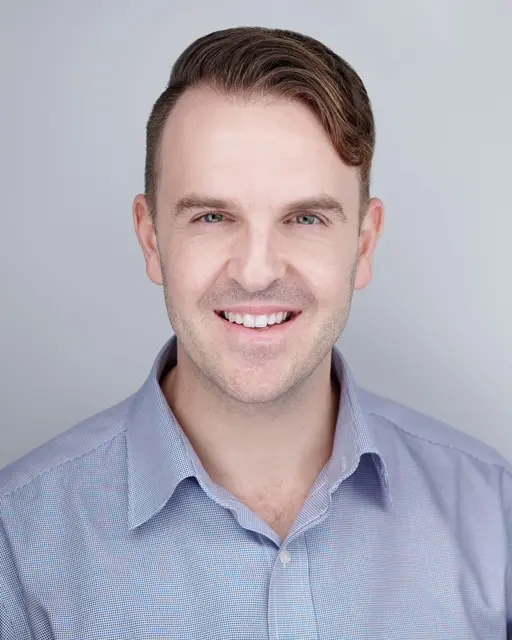
If social situations make your heart race, palms sweat, or thoughts spiral—know that you’re not alone. Social anxiety affects millions of people, and it often shows up in the moments that are supposed to feel joyful or routine—like chatting with coworkers, speaking up in class, or even answering a phone call.
The good news is: social anxiety is treatable. You don’t have to live in fear of judgment or hide from social settings forever. Whether you’ve been struggling for years or you’re just starting to notice signs, this guide will help you understand what social anxiety is, what causes it, and how to start taking steps toward confidence and calm—on your own timeline.
What Is Social Anxiety?
Social anxiety is more than shyness. It’s a persistent fear of being judged, embarrassed, or rejected in social or performance-based situations.
It might show up as:
- Avoiding eye contact or group settings
- Fear of speaking in public, even among friends
- Worrying for hours—or days—after conversations
- Physical symptoms like shaking, sweating, or stomachaches
- Declining invitations, canceling plans, or staying isolated
Social anxiety can be mild or severe, but even the subtle version can make life harder than it needs to be. The important thing to remember is: it’s not a personality flaw. It’s a form of anxiety—and like all mental health issues, it deserves compassion and support.
Why Do People Develop Social Anxiety?
There’s no one-size-fits-all answer, but several common factors may contribute to social anxiety:
- Past bullying or humiliation: Early experiences of teasing, being excluded, or public embarrassment can leave deep emotional scars.
- Family environment: Growing up around overly critical, anxious, or overprotective caregivers can teach us to fear judgment or failure.
- Trauma or emotional neglect: When people haven’t felt safe or accepted, they may start to view all interactions as threats.
- Perfectionism and self-criticism: Holding yourself to impossible standards makes it hard to feel “good enough” in conversations.
- Genetics and brain chemistry: Anxiety disorders often run in families and may be linked to brain regions that regulate fear.
Whatever the cause, your anxiety is valid—but it’s not permanent. Your brain can change. You can grow new pathways that lead to confidence and connection.
7 Practical Ways to Start Overcoming Social Anxiety
If walking into a party feels impossible, start by saying “hello” to a neighbor or texting a friend. Exposure therapy works best when it’s gradual. Set micro-goals—then acknowledge your progress.
Social anxiety often comes with distorted thinking:
- “Everyone’s staring at me.”
- “I sound stupid.”
- “They’ll think I’m awkward.”
Ask yourself: Is this fear based on facts or feelings? Try replacing that inner critic with a more compassionate voice:
👉 “I might be nervous, but I’m doing my best.”
Anxiety activates your fight-or-flight system. You can calm it by using your breath.
Try this simple pattern:
- Inhale through your nose for 4 seconds
- Hold for 4 seconds
- Exhale slowly through your mouth for 6 seconds
Repeat for 2–3 minutes before or during stressful social moments.
Before a big event or meeting, close your eyes and imagine it going well. Visualizing a calm, confident version of yourself speaking clearly and smiling helps train your brain to respond with less fear in the moment.
Avoidance feels like protection—but it strengthens anxiety over time. Try to gently face uncomfortable situations instead of skipping them. You don’t have to say yes to everything—but pushing yourself just a little builds resilience.
Talking to a professional can help you uncover the roots of your anxiety and reframe your thoughts. The best part? You don’t have to do it in person.
Virtual therapy offers a comfortable, judgment-free setting to build your confidence—at your pace, from your space.
At Higher Purpose Recovery, we offer Virtual Intensive Outpatient Programs (IOP) and individual therapy designed for people just like you—those ready to heal but unsure where to start.
It takes courage to show up socially when your brain says to run. Whether it’s making a phone call, joining a video call, or showing up to a group, give yourself credit. Keep a journal, treat yourself after milestones, or share your wins with someone you trust.
When to Seek Professional Help
You don’t need to wait until anxiety feels “unmanageable” to reach out for help. Therapy is a tool—not a last resort.
Here are signs that it may be time to speak with a professional:
- Your anxiety is affecting your school, work, or relationships
- You’re avoiding most social settings
- You experience panic symptoms or feel overwhelmed daily
- You feel isolated or depressed
Therapy can help you rewire old beliefs, build new habits, and learn to show up confidently in your life. And with virtual support from Higher Purpose Recovery, you can take that step without the pressure of leaving your comfort zone.
Why Choose Virtual Therapy for Social Anxiety?
Many people with social anxiety prefer virtual therapy. Here’s why it works so well:
- You can stay in a familiar environment (your home)
- Less pressure to make eye contact or “perform”
- Flexible scheduling that fits your routine
- Easier access to anxiety-focused treatments like CBT and DBT
- You’ll feel safe, supported, and in control
Our compassionate therapists specialize in helping people with anxiety, trauma, and self-esteem challenges—and we’ll meet you wherever you are on your journey.
You’re Not Alone—You Just Need Support
If you’re tired of overthinking, shrinking back, or missing out on opportunities because of social anxiety—there’s hope. You’re not broken. You’re not “too much.” You’re not too late.
Whether you want to feel more confident at work, more present in relationships, or simply more comfortable in your own skin—we’re here to walk that journey with you.
Ready to take the first step?
📞 Contact Higher Purpose Recovery to learn about our flexible virtual IOPs, one-on-one therapy, and how we can help you overcome anxiety at your own pace.
Serving all of California with accessible, judgment-free, and personalized mental health care.





